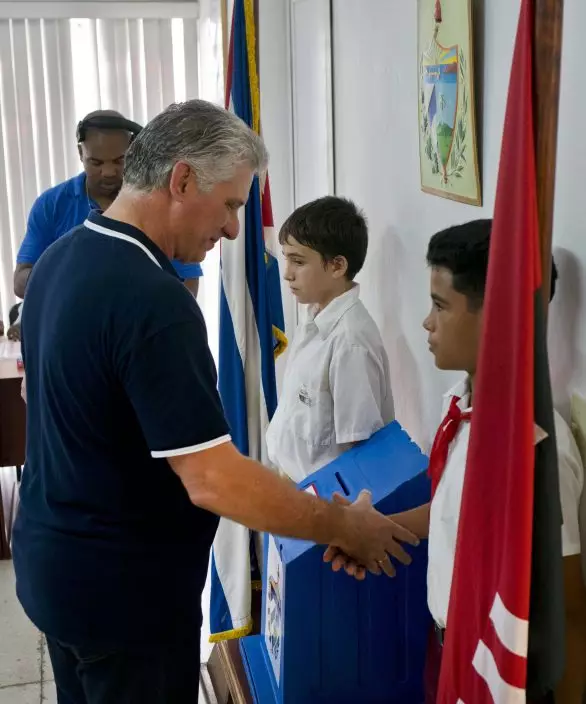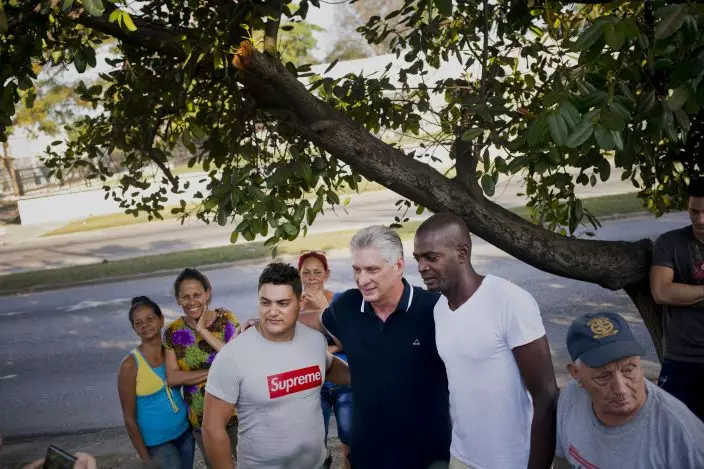Cuban leaders are rallying citizens to the polls for a referendum on a new constitution meant to update a charter adopted decades ago when the country was a close ally of the Soviet Union.
The new document maintains control by the Communist Party, but recognizes private property for the first time after years of greater opening to small-scale private enterprise.
Passage of the measure is assured, despite opposition by some evangelical Christian leaders upset that the document opens the possibility for eventual legalization of gay marriage.

Cuba's President Miguel Diaz-Canel greets a student after voting in a referendum to approve or reject the new constitution in Havana, Cuba, Sunday, Feb. 24, 2019. The constitutional reforms maintain Cuba's single-party political system and centrally planned economy while recognizing private property and small businesses, which have been part of the island's economy without formal legal status for more than a decade. (AP PhotoRamon Espinosa)
Lines stretched out from schools used as polling places on Sunday.
President Miguel Diaz-Canel took to Twitter to encourage support, writing "CubaVotesYes" and saying the document "guatantees the rights of each and every citizen of the nation."

Cuba's President Miguel Diaz-Canel poses for photos with residents after voting in a referendum to approve or reject the new constitution in Havana, Cuba, Sunday, Feb. 24, 2019. The constitutional reforms maintain Cuba's single-party political system and centrally planned economy while recognizing private property and small businesses, which have been part of the island's economy without formal legal status for more than a decade. (AP PhotoRamon Espinosa)


